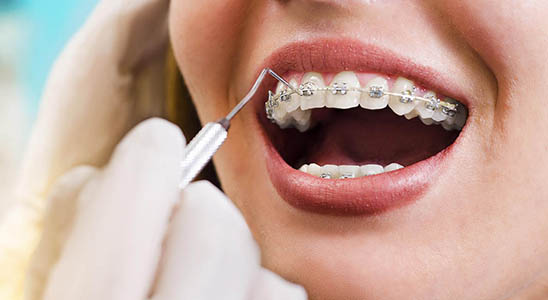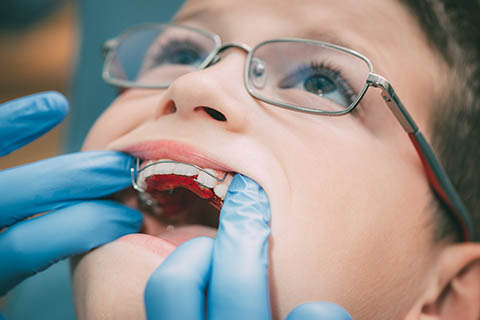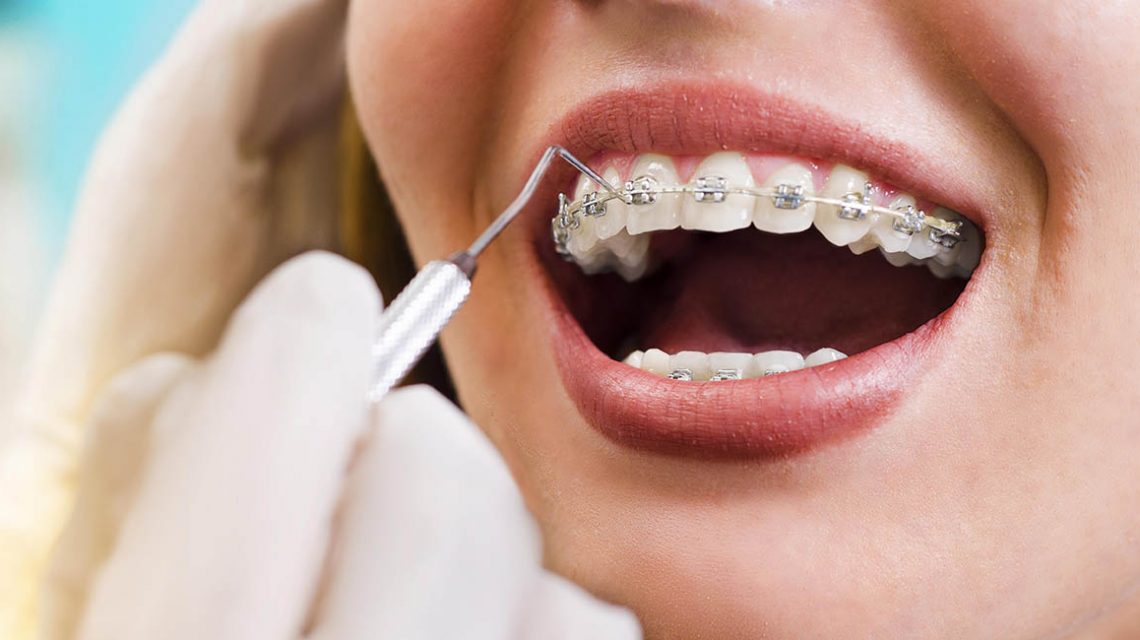St. Lawrence Dentistry sees many children which benefit from early orthodontic treatment.
There is a common misconception that children should start orthodontic treatment when all the permanent teeth have erupted, usually around 12 to 14 years of age. According to the American Academy of Orthodontics, children should be seen for an orthodontic assessment by age 7, when the first set of permanent molars have erupted. This helps to determine if there are any issues with the growth of the jaws and/or development of the erupting permanent teeth. If problems are detected at a young age, early orthodontic intervention can minimize the need for complicated treatment in the future such as extraction of teeth or surgical intervention and reduce the time in treatment in braces at a later age.

Early Interceptive orthodontics allows the dentist to “intercept” any problems that may occur at an earlier age and correct them to prevent complicated treatment in the future. Early intervention may involve inserting a space maintainer to help adult teeth erupt into place properly, or create space with an expander to avoid impaction of adult teeth. This way, the dentist takes advantage of the growth potential of the patient to help prevent the need for extraction of permanent teeth in the future. Interceptive Orthodontics for Children Interceptive orthodontics is often the first phase of orthodontic treatment and usually begins at a younger age. It may not prevent the need for braces, retainers, or other orthodontic treatment in later years but it can minimize the length time that a patient needs braces.

Phase I treatment is used sometimes used to correct problems such as:
- Thumb sucking and pacifier habits
- Tongue thrusting
- Narrow upper jaw resulting in a crossbite
- Excessive crowding of the upper and lower jaws
- Premature loss of baby teeth
- Underbites
- Severe overbites
- Recessive lower jaw
- Crossbite of the upper front teeth
- Impacted teeth
- Protrusive upper front teeth
- Issues with chewing and function of the jaws
Advantages of Interceptive Orthodontics are many. Early orthodontic treatment may prevent serious problems from developing and may make treatment at a later stage shorter and less complicated.
Early treatment gives your orthodontist the chance to:
- Guide jaw growth to create facial symmetry
- Lower the risk of trauma to protruded front teeth
- Correct harmful oral habits
- Improve appearance and self-esteem
- Guide permanent teeth into a more favorable position
- Improve the way lips meet
- Create room for crowded, erupting teeth
- Preserving space for un-erupted teeth
- Reducing the need for tooth removal
- Reducing treatment time

The most important advantage of interceptive orthodontics is that it takes advantage of a child’s natural growth potential. This ensures that enough space is created for adult teeth to erupt and minimizes any issues with the growth of the jaws. Crowded teeth can make it difficult to brush and floss which can lead to tooth decay and gum disease. Unfavourable growth of the jaws in cases such as crossbite and underbites can cause issues with the growth of the jaws which in turn leads to problems with the growth of the face and uneven wear of the teeth. Excessive protrusion of the front teeth increases the risk of accidental chipping or fracture due to a fall. Tongue-thrusting and digit habits may result in open bites and speech impediments. Put the health of your kids in the right hands – Contact St. Lawrence Dentistry for an initial consultation to ensure that your child’s jaws and teeth are developing ideally. If necessary, Dr. Hawryluk will refer your child to a Board Certified Orthodontist for treatment. One excellent orthodontist in Port Credit is Dr. Preet Virdee.
You can visit her here:
If you have questions about how your child’s teeth are developing please call our office to book an assessment.
- St. Lawrence Dentistry Looks Forward To St. Patrick’s Day! - March 12, 2025
- Understanding Dental X-Rays and Radiation: What You Should Know - January 13, 2025
- Happy New Year from St. Lawrence Dentistry! - December 30, 2024










